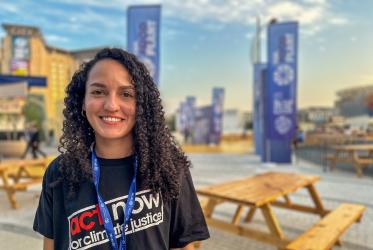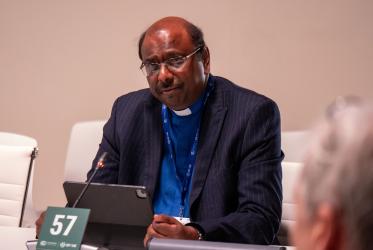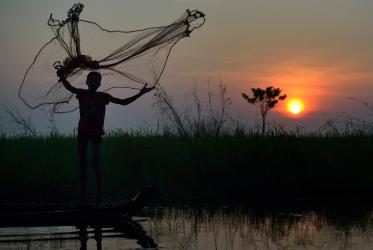Displaying 1 - 20 of 129
Voice of churches vital during UN women’s rights talks
28 March 2024
What can churches do to prevent modern slavery?
22 February 2024
Ellyanne Chlystun-Githae Wanjiku to COP28: “listen more to children”
13 December 2023
At COP28, WCC general secretary hopes for “less talk and more walk”
01 December 2023
A Guide for Churches on the Prevention of Obstetric Fistula
26 October 2023
ACT Alliance general secretary: “equity is not negotiable”
26 September 2023
















